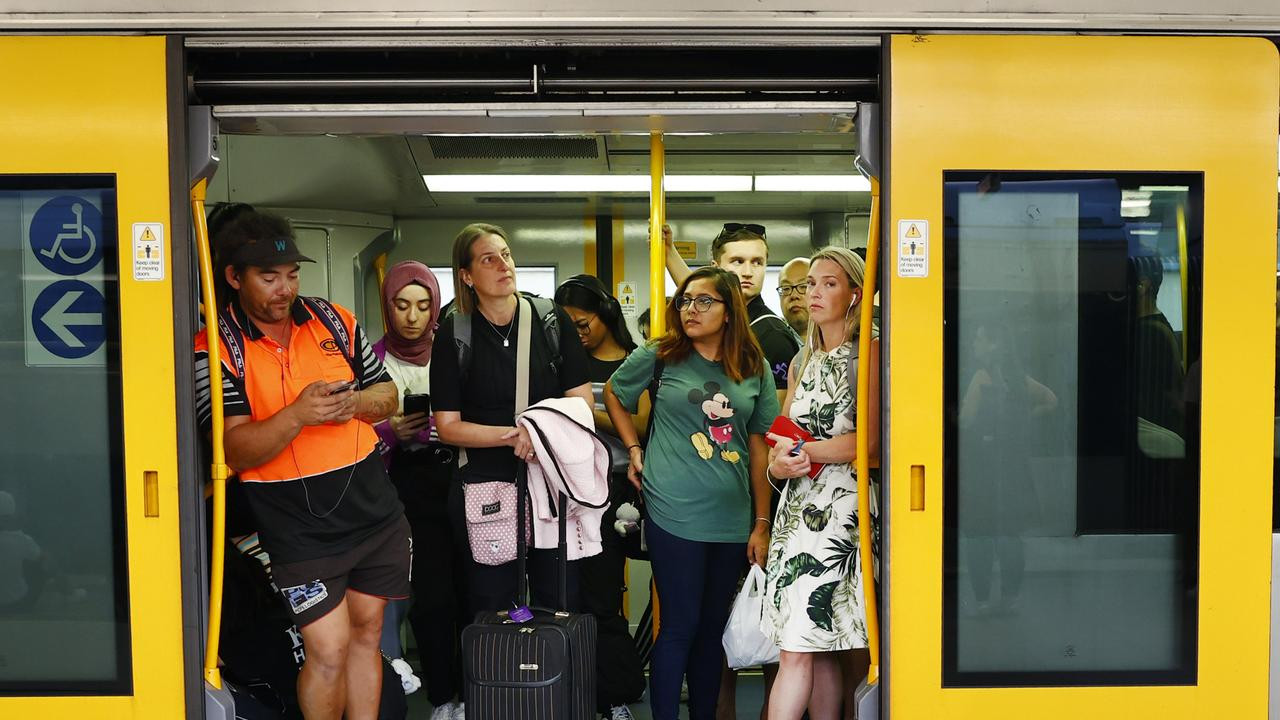Sydney Trains Shutdown: Four Days of Travel Chaos
Sydney's sprawling train network, a lifeline for over a million daily commuters, is set to grind to a complete halt from Thursday, November 21st, to Sunday, November 24th. This unprecedented shutdown stems from a protracted pay dispute between the NSW government and the Rail, Tram and Bus Union (RTBU), escalating tensions that have gripped the city's transport system for months.
The RTBU had issued an ultimatum: either Sydney Trains runs all lines around the clock from Thursday to Sunday, or face a complete shutdown. The government, while agreeing to the 24-hour service last weekend, deemed it unsustainable this week, proposing a limited 24-hour service between Hornsby and Strathfield. This offer was rejected by the union, leading to the impending shutdown.
The Heart of the Dispute: Pay and Conditions
At the core of this dispute lies a significant gap between the union's demands and the government's offer. The RTBU is pushing for a 32 percent pay rise over four years—an 8 percent annual increase—and a 35-hour working week. The government, however, has countered with a 9.5 percent pay rise over three years. This disparity has fueled the union's accusations of bad-faith negotiations, further exacerbating the situation.
Union Accusations and Government Response
RTBU secretary Toby Warnes has been vocal in his criticism, accusing the NSW government and Sydney Trains of failing to negotiate in good faith. He highlighted the government's frequent public statements as exceeding their engagement in actual negotiations. Transport Minister Jo Haylen, in response, urged the RTBU to find a resolution, stating her willingness to meet and reiterating the government's inability to sustain 24-hour train services continuously.
The Impact: Widespread Disruption and Alternative Travel Plans
The four-day shutdown will cause widespread disruption, affecting both suburban and intercity lines. Sydney Trains chief executive Matt Longland described this as the worst disruption to the city's rail network in recent memory. The impact extends beyond daily commuters; major events scheduled for the weekend, including Pearl Jam concerts at Sydney Olympic Park, will be significantly affected, with organizers urging attendees to plan alternative transport. Transport for NSW is preparing alternative transport options including buses, though they acknowledge that these cannot accommodate the usual volume of passengers.
A Cascade of Consequences: Beyond Commuters
The disruption will reach far beyond the inconvenience faced by commuters. Businesses relying on daily deliveries and staff commuting will feel the ripple effects. The city's economic activity, usually heavily reliant on efficient public transport, will likely slow down, impacting various sectors. The considerable number of people who use Sydney Trains every day, approximately one million, will be greatly impacted and need to find alternative arrangements to travel around the city. The added burden to alternate means of transportation will result in further delays and congestion.
The Road Ahead: Finding a Solution
The immediate future remains uncertain. While late-night negotiations were held in the hopes of averting the shutdown, the outcome remains unclear. Both sides have expressed a willingness to continue talks, but the deep-seated differences in their positions suggest that a quick resolution may prove elusive. The ongoing dispute serves as a reminder of the critical role of labor negotiations in maintaining essential public services and the potential cost of unresolved conflicts for commuters and the wider community alike. The future of public transport in Sydney continues to be affected by these disputes and may lead to further delays and uncertainty.
Navigating the Uncertainty: A Call for Patience and Understanding
The looming shutdown underscores the need for comprehensive planning and clear communication. Commuters are urged to utilize alternative transportation methods and to anticipate considerable delays. The situation emphasizes the importance of finding common ground in labor disputes that significantly impact the daily lives of millions, especially the needs of commuters to and from work and events. The focus should be on finding a fair and sustainable solution that addresses both the union's concerns and the government's financial constraints, thereby ensuring a reliable and efficient public transport system for all Sydneysiders.
Awaiting the Whistle: What Happens Next?
The coming days will be crucial in determining the extent of disruption and the ultimate resolution of this conflict. The impact on Sydney’s commuters, businesses, and the city’s overall functionality will undoubtedly be felt. Ultimately, the success of this negotiation hinges on a willingness from all parties to find a common ground that balances the needs of both workers and the broader community. Only then can the disruptions to the city’s vibrant public transport system be lessened. The future trajectory of Sydney's train network depends heavily on the outcome of this dispute.

















